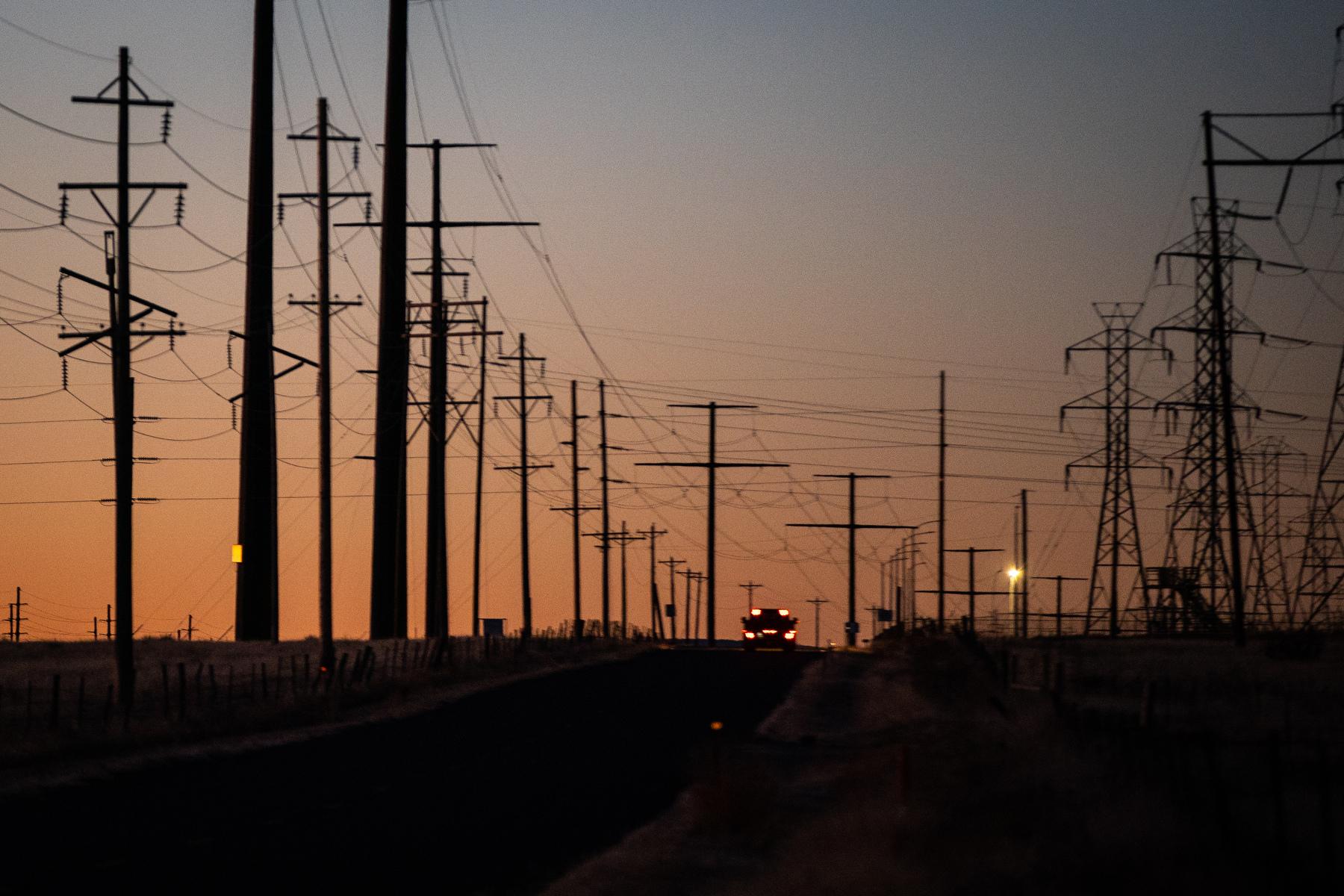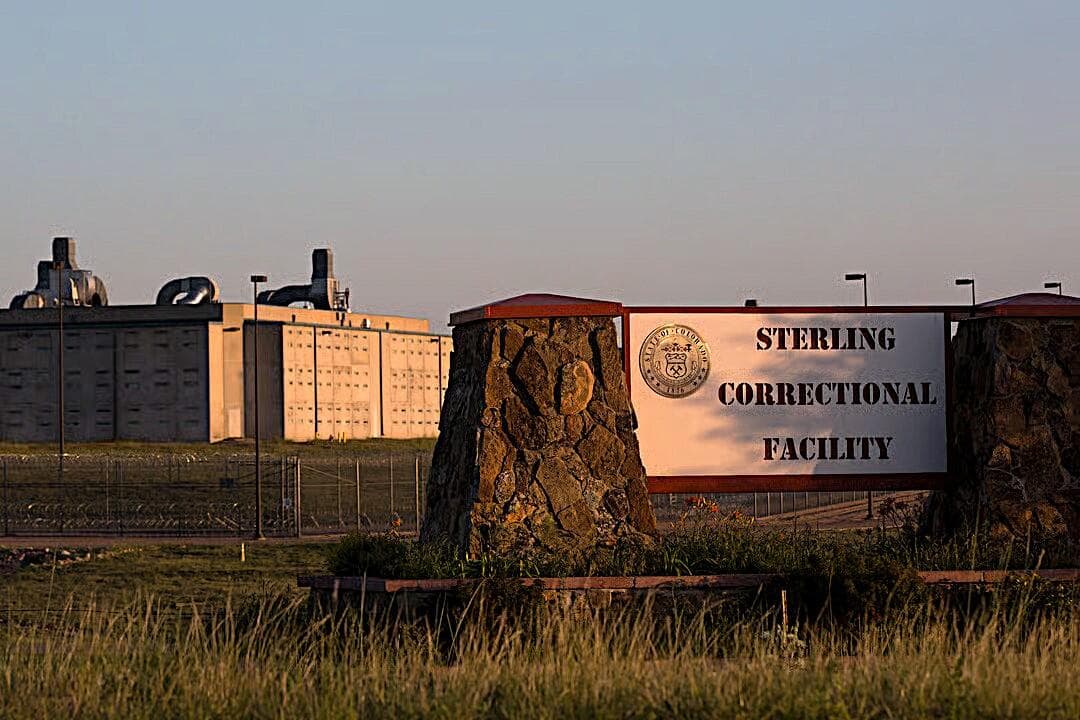
After years of costly wildfires, the insurance affordability crisis is not just saddling Colorado homeowners with massive premium increases. Insurers are now dramatically ratcheting up premiums for Xcel Energy, the state’s largest utility.
And the company wants customers to eventually pay for it.
Last month, Xcel Energy told the Colorado Public Utilities Commission that its “excess liability insurance” is increasing by nearly 300 percent compared to last year. In its filing to regulators, Xcel Energy estimated that it would pay $49 million this year for the insurance, starting on October 18.
The company did not immediately provide CPR News with the final cost of its premium, or the name of its insurers.
The company uses that insurance when its employees or equipment causes catastrophic events like wildfires, which can lead to costly property damage and death. In its filing, Xcel Energy said climate change, “unprecedented” wildfire risk and lawsuits are driving up rates for every major Western utility.
Xcel Energy is currently facing at least 300 lawsuits for its alleged role in sparking the Marshall fire — which the utility has denied — and additional lawsuits that blame its power equipment for sparking Texas’ largest wildfire.
In its filing, the utility argues to Colorado regulators that its premium increase is an extraordinary circumstance, like the costs it spent during the outbreak of the COVID-19 pandemic. It wants regulators to let it track how much it spends on the insurance, so it can eventually bill that cost back to Coloradans months or years later, potentially after tacking on additional interest.
The utility commission decides how much Xcel Energy is allowed to charge customers for expenses like insurance or building new power plants, typically through discussions in a rate case.
Since rate cases typically occur only every few years, Xcel Energy is asking regulators to potentially let it charge customers for its insurance bill sooner, according to consumer advocates.
“The company is seeking expedited recovery of these costs outside of a rate case,” said Joseph Pereira, Deputy Director of Colorado’s Office of the Utility Consumer Advocate, an independent state agency that advocates on behalf of utility customers.
“It’s really a question of, does the company receive some expedited treatment, or does it have to wait till the next rate case to get these dollars back into their coffers?”
In Pereira’s view, Xcel Energy’s request amounts to an accounting trick. He said the utility should wait until the next rate case to argue why Coloradans, and not corporate shareholders, should pay its insurance bills.
There are some signs state regulators are sympathetic to that argument. Dipesh Dipu, a financial analyst for the utilities commission, recommended that regulators deny Xcel Energy’s request and that the company should wait until a rate case to try to recover its insurance costs.
“A future rate case, by providing greater access and opportunity to review information pertaining to costs … provides a far better platform in which to address the issue at hand,” Dipu wrote in a response to Xcel Energy’s filing.
In a statement emailed to CPR News, a representative for Xcel Energy said that keeping its coverage was essential to its business.
“We are proposing to track and defer costs associated with excess liability insurance premiums and will not seek to include those costs in rates until a future rate case,” the spokesperson wrote.
A Leaning, Unstable Tower
Xcel Energy’s excess liability insurance is provided by several different companies that pay for claims in a specific order. In a filing to regulators, the utility compares the way it stacks its insurance policies to a tower.
At the bottom floors of the tower, Xcel Energy uses “mutual insurers,” which the company says provide the broadest coverage. In the middle floors, the company buys its insurance from commercial markets in London, the United States and even Bermuda.
The glue holding the tower together is an in-house insurance company created by Xcel Energy’s parent company, which plugs any gaps in coverage.
Since 2014, Xcel Energy has spent tens of millions of customers’ dollars to pay for its insurance tower. But, increasingly, insurers are turning tower building into a game of Jenga, leading Xcel Energy and other utilities to seek out more stable options.
Southern California Edison, a California utility, pooled some of its own money to pay for claims arising from wildfires. This model is called “self-insurance,” and in a filing, Xcel Energy said it was considering self-insuring in the future.
But for now, Xcel Energy says it needs its liability insurance to keep customer bills low and make sure investors keep investing, despite the cost increase.
“The more than tripling of the premium has no historical basis,” Steven P. Berman, an Xcel Energy vice president, wrote in a filing to regulators.
Will costs go down?
In June 2024, Xcel Energy unveiled a massive plan to regulators, detailing how it will improve its operations to reduce the chances that its power lines and other equipment spark a wildfire.
The company hopes, but cannot guarantee, that its wildfire safety plan will eventually lead insurers to lower its premium. But the company does not know when its insurance costs might dip back to historically normal levels, according to its filing.
Berman, the Xcel Energy vice president, maintains that increased insurance costs are “largely beyond the utility’s control.”
Todd Logan, an attorney for Edelson PC, which is suing Xcel Energy on behalf of hundreds of Marshall fire survivors, disagrees. He said that Xcel, and other Western utilities, are trying to pass on the costs of alleged negligence through their insurance.
Some utilities have seen their rates spike after juries found them liable for starting wildfires.
“Utilities know that they can't ask for rate increases to cover the cost of their misconduct,” Logan wrote in an email to CPR News. “So instead, they cynically seek to defer the rate hikes for a few years, hoping everything will be swept under the rug by the time they later ask for them.”
Logan’s firm represented over 1,500 people who sued PacifiCorp, an Oregon utility, for sparking massive fires in 2020. In 2023, an Oregon jury found the company responsible for starting four of those fires and ordered the company to pay damages to thousands of homeowners. Since then, PacificCorp’s liability insurance jumped by $96 million.
In 2023, the company asked Oregon regulators to let it track its costs, so it could eventually bill back its insurance costs to customers. In 2024, regulators agreed.
Dipu, the financial analyst for Colorado's utilities commission, recommended that if juries find Xcel Energy responsible for starting Colorado fires, the company should not be able to bill back any insurance costs related to those fires.
Colorado regulators will hold a hearing in November and issue a decision in December."
Editor's note: This story was updated to include details about the PacifiCorp lawsuit, additional comments from the Public Utilities Commission's financial analyst and an updated timeline on the Colorado hearing.
2/6/2025: It was also corrected to reflect the correct percentage increase to the insurance Xcel Energy carries.









